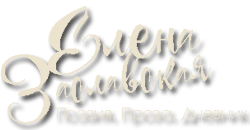Автор перевода пожелал остаться неизвестным. Перевод осуществлен при участии Irene Zugasti Hervás
Black bread
It was a long harmless time. Long.
It was a long time with no war. Long.
Children had time to grow up.
Grandchildren as well, had time to grow up.
But great grandsons did’t have enough time.
Son told: «I go. Try to forgive»
Than grandson told: «I am off. Let me go»
And great grandsons became pretty older.
And hot blood spread allover again.
And the Motherland was cut and ripped again.
Brother fights against brother, friend against friend.
Mother’s milk turned to black,
As the blood in the people’s hearts turned to black.
Black as an antracite, as our krasnodonsky** coal.
Like the last course of coal. From the bottom of the Earth.
Up, straight out from the Hell.
History is calling for changes
And spinning, spinning, spinning this black millstone.
We became a bricks of black bread on this war,
But who we were… We were golden rye.
*Black bread. In Russia and USSR always was two most popular types of bread: white (made of wheat) and black (made if rye). Sometimes, in Russian language black bread becomes a symbol of war, hunger, disaster or poverty, because when comes some bad time, that can bring hunger, people prepare as much black bread as they can. This bread is cheap, has a lot if calories, easy to keep in dry conditions for several years. In this poem we can see parallel between black colour of coal, black colour of bread, and this symbolism, then people have nothing to eat in case of war, only dry black bread.
**Antracite, Krasnodonsky coal — it is 2 names of a typical sort of coal, which has horror-black color. It is mined and produced on territories of Donbas and Luganskaya area for long times. It is like a symbol for local citizens that doesn’t depend on time, government or politics. Читать полностью
